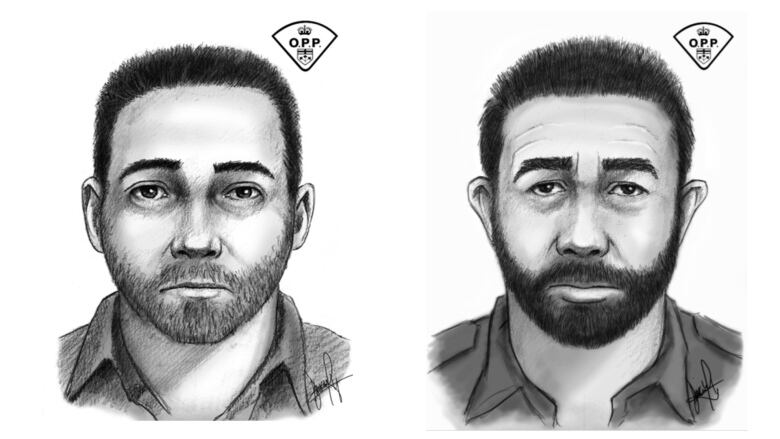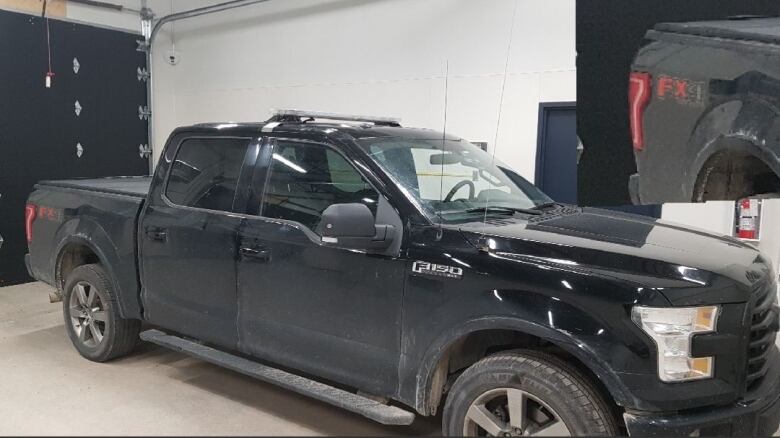Fake cops doing traffic stops in southwestern Ontario, police warn
Those stopped by unmarked police cars can ask for badge numbers or call 911, police say

People in southwestern Ontario are posing as officersand making fake vehicle stops, police say. Now, the real police are releasing sketches of two suspects and say those concerned about an officer's legitimacyshould ask for badge numbers and can even call 911 to verify an officer's identity.
"Any situation where a member of the public impersonates a police officer is a serious offence as well as a concern for public safety," said County of WellingtonOPP Const. Cheri Rockefeller.
Incidents have been reported in Wellington County, Essex County and Saugeen Shores, all with a similar approach.
Police say suspects are driving cars or trucks outfitted with flashing lights and other police paraphernalia, and the driver may be wearing clothes that look like a police uniform.
The suspects have allegedly used the props to make fake vehicle stops, in some cases asking drivers to prove whether or not they are essential workers, police say.
"At this moment we are not stopping people checking for essential worker status," Rockefeller said.
One person has been arrested in Wellington County and one inSaugeen Shores, but police are still looking for two others. At this time, provincial police say they don't believe the incidents are connected.
Under the Criminal Code, impersonating a police officer can lead to a prison term of up tofive years.

Crime of opportunity
An American expert in police impersonation says similar incidents have occurred in her area in recent weeks. Local media in Denver reported at least six incidents of police impersonationin the last two weeks of March.
Police impersonation is a crime of opportunity, says Mary Dodge, who researches crime at the University of Colorado inDenver. During quarantine, she says, criminals may think authorities are tied up with other issues and are more likely to let slide smaller offences such as police impersonation.
"It's the idea that if we have a lack of capable guardians, no one's going to catch these police impersonators. And there are targets everywhere, so why not go ahead and do this?" said Dodge, a professor in the university's school of public affairs.
The internet also makes it relatively easy for criminals to find fake police badges, holsters and even strobe lights online, she says.
For people who don't often interact with police, she says, it can be difficult to tell the difference between real and bogus police gear, especially late at night.
"People will not react thinking clearly when we see a police officer and flashing lights behind us," said Dodge. "I'm not going to think, 'Is this a legitimate officer, is it someone I can trust?' You're just going to pull over."
Dodge says more public education is needed so that people understand what information they can expect from police. She said police services also need to be sure they're educating their own members about what information the public has a right to ask for.
"I guess I could boil [the solution] down to education for everyone," she said.
Dodge, who is in the process of a second study into police impersonation, said more widespread data about the nature and the frequency would also be useful for policy-makers.












_(720p).jpg)


 OFFICIAL HD MUSIC VIDEO.jpg)
.jpg)



























































































